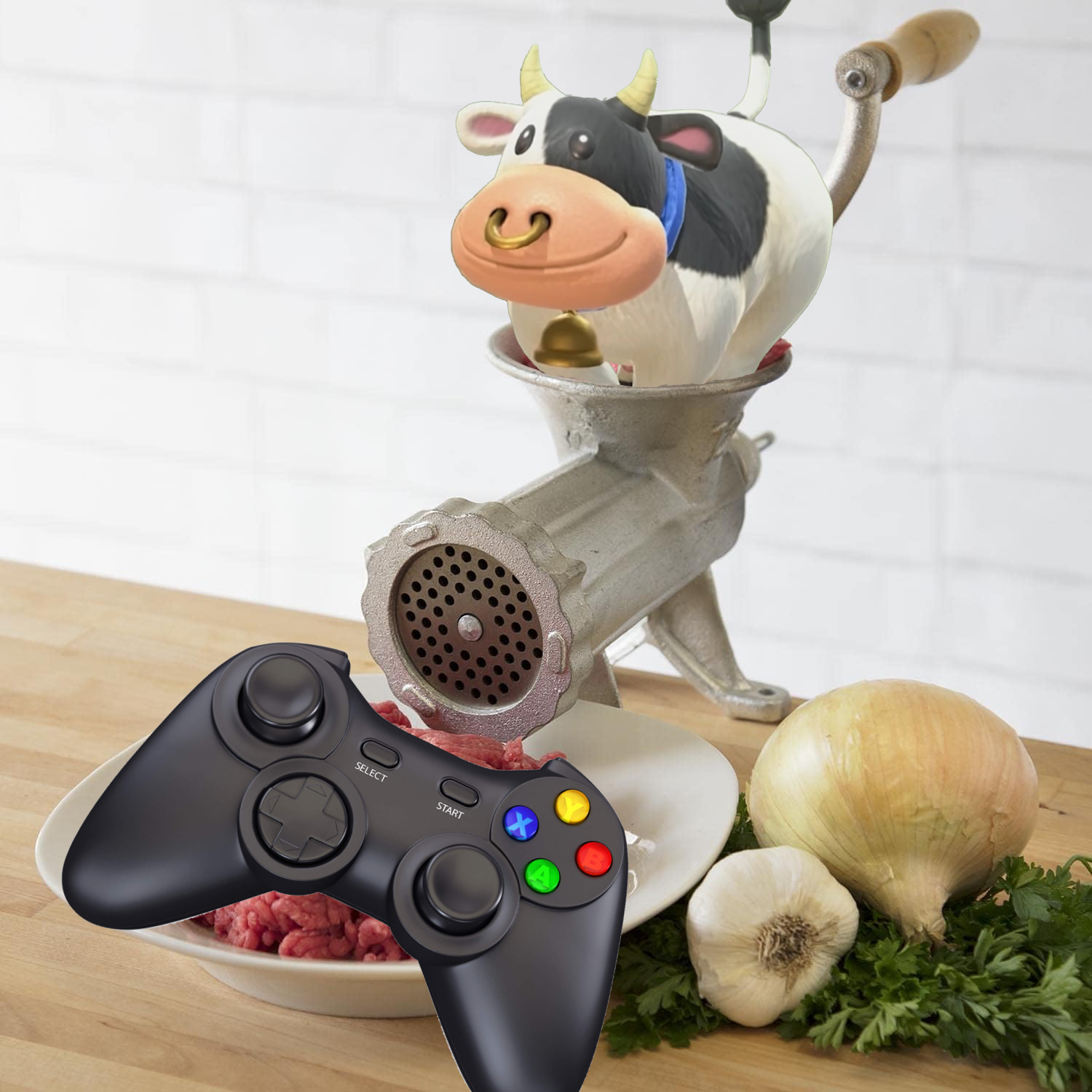Cows, cash, and can I even enjoy games anymore?
Ideally, how many animals should die to produce a video game?

Ideally, how many animals should die to produce a video game?
At first blush, this seems like an absurd question, but it’s a real example that allows us to ask some important questions about what it means to purchase and consume video games.
Can a video game be non-vegan?
Vegans (try to) exclude animal products from their diet and lifestyle. This includes everything from meat and dairy to honey and Jell-O. If we use The Vegan Society’s definition of veganism, it’s “a philosophy and way of living which seeks to exclude—as far as is possible and practicable—all forms of exploitation of, and cruelty to, animals for food, clothing or any other purpose.”
With that definition in mind, the release of Dragon’s Dogma 2 created an interesting philosophical conundrum. As early as the previews, people noticed that the cooking cutscenes looked too good. Director Hideaki Itsuno later confirmed that those camping interstitials are videos of real meat cooking. Which means you can argue that those cooking cutscenes make Dragon’s Dogma 2 not vegan.
It feels like an absurd thought experiment designed to poke at the edges of a doctrine to find flaws and loopholes. (Isaac Asimov has a whole series of stories that do exactly that with his Three Laws of Robotics.) But if you’ve taken the stance that you would rather not exploit animals in any way, it’s a question you’re obligated to navigate.
And it’s a complicated one. Jell-O and most gummy bears contain gelatin derived from animals. So does most ballistic gel (sorry Mythbusters). British paper money contains tallow (animal fat). So do some fabric softeners.
This pervasiveness is why The Vegan Society had to include “as far as is possible and practicable” in their definition. Some things are unavoidable in society, and maintaining your stance becomes a question of where you, personally, draw the line.
At this point in my life, I’m like 90% vegetarian. I still eat pork and chicken occasionally. I probably won’t ever be vegan (because cheese), but I get it. I don’t, however, eat beef.
This was primarily an environmental decision made 20 years ago when I was living in the Desert Southwest. Cattle require nearly 2,000 gallons of water per pound of beef produced. The water used doesn’t disappear, but it does get contaminated with everything from feces to pesticides. It’s more than double what it takes to produce a pound of pork. Something less than two thousand gallons of water is, apparently, my line. It’s arbitrary, but it’s one I can mostly defend.
Ideally, that line would be at zero, but since that’s not possible (and since bacon is tasty), I drew an arbitrary line that pushed my number up.



